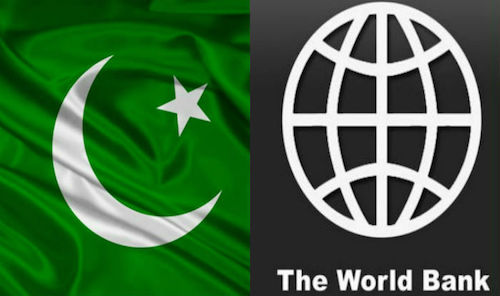The World Bank’s Board of Executive Directors approved $1.692 billion for flood-affected Sindh province.
WB said three of the five initiatives help vulnerable communities’ rehabilitation, home repair, and crop production. Two are $500 million, and one is $292 million.
Sindh was the worst-affected province in 2022. Housing, health, and agriculture were devastated, and people lost their jobs. Our cooperation in the flood recovery effort provides an opportunity to build resilience and reform institutions and governance systems, said World Bank Country Director for Pakistan Nagy Benhassine.
“Sindh Flood Emergency Rehabilitation Project” will provide short-term livelihood possibilities and increase the provincial government’s disaster response capacity.
The project will improve irrigation, flood protection, water supply, roadways, and other infrastructure. At least 2 million individuals, 50% of whom are women, in flood-affected districts will benefit from restoring and rebuilding vital infrastructure.
A cash-for-work scheme will help 100,000 households temporarily.
The $500 million Sindh Floods Emergency Dwelling Rebuilding Project will assist owner-driven, multi-hazard housing reconstruction. A housing subsidy will restore 350,000 homes (almost 20 percent of Sindh’s total housing rehabilitation needs). In addition, houses with structural damage will receive cash subsidies for rehabilitation or restoration.
Rainwater collection systems and twin pit latrines will improve water and sanitation.
The $292 million approved for the “Sindh Water and Agriculture Transformation Project” will boost agricultural water productivity, integrated water resources management, and flood-affected farmers’ crop production.
The project will help 385,000 households (1.9 million people). As an urgent response to the floods, the project will give cash transfers to 300,000 flood-affected farming households to assist them in buying seeds, fertilizer, and other inputs. Medium-term, roughly 70,000 households will benefit from increased irrigation services and agricultural support. In addition, the prototype smart subsidy schemes for small and medium-sized farmers will assist 14,000 people, the WB claimed.
The $200 million Sindh Strengthening Social Protection Delivery System Project would improve mother and child health services. The project will deliver conditional cash transfers (CCTs) to 1.3 million mothers and their children to improve maternally and child health outcomes, especially after the floods. The CCTs will be available to the bottom 15 districts of Sindh, selected based on the Multidimensional Poverty Index (MPI), and will cover 65% of the province’s flood-affected areas to help mitigate flood impacts, especially food insecurity, and enable continued use of maternal and children’s health services.
Sindh Integrated Health and Population Project received $200 million. The project will improve reproductive, maternal, neonatal, child, and adolescent health and nutrition. It will also assist in repairing flood-damaged health facilities, which disrupt service delivery.
The initiative will promote access to quality healthcare in remote and peri-urban areas, notably for women, girls, and children, and in flood-affected settlements in Sindh.
According to a statement, the World Bank will continue to help Pakistan recover from the recent flood emergency and build long-term resilience to climate-related shocks.






